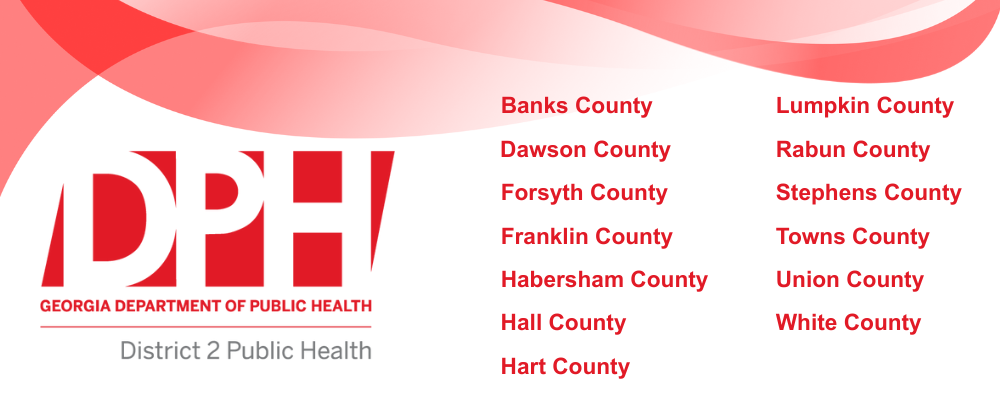“Occasionally termed a branch of medicine, epidemiology is the study of how often diseases occur in different populations and why.”
Mission
The Epidemiology (EPI) Department conducts investigations, follow-ups, and coordinates with providers and/or healthcare facilities (such as hospitals or nursing homes) to ensure those affected by certain infectious diseases or health conditions are treated appropriately and any further spread of the illness is prevented. Immediate action may be taken in the event of an outbreak to control the situation.
Key Activities
Disease Surveillance
Investigate and monitor notifiable and reportable disease cases and outbreaks within the 13 counties of District 2 (North Health District).
STI Care Patient Follow-Up
Routinely follow up with communicable disease patients for testing, treatment, and specialized medical or partner services related to sexually transmitted infections (STIs/STDs).
Data Collection and Analysis
Collect disease-/health-related data and conduct statistical analyses/interpretation to share findings with district leadership, health partners, and stakeholders in the private and public sectors for improving health outcomes.
Education and Community Guidance
Provide education and guidance for healthcare professionals, facilities, and patients in the community.
Interdepartmental Coordination
Coordinate with other District 2 Public Health departments, including Environmental Health and Emergency Preparedness.
Programs & Services
Infectious and Communicable Notifiable Disease Investigations
The EPI Department commonly investigates reports of acute infections for:
- Foodborne and waterborne illnesses such as Shiga toxin-producing E. coli, Campylobacter, Salmonella, and cholera,
- Respiratory diseases like Legionella,
- Vector-borne diseases including malaria, Lyme disease, and tularemia, and
- Vaccine-preventable diseases such as Hepatitis A, pertussis (whooping cough), varicella (chickenpox), and measles.
We also follow up on other reportable illnesses or conditions of concern:
- Outbreaks of viral diseases such as norovirus, RSV, influenza, and COVID-19,
- Certain chronic diseases of infectious (ex: chronic hepatitis B and C) or concerning non-infectious origin (cancer),
- Communicable infestations including head lice and scabies, and
- Syndromic notifications from our healthcare partners.
Comprehensive STI/STD Services
All county health departments offer comprehensive and confidential services for testing, treating, and managing STIs/STDs, including chlamydia, gonorrhea, syphilis, and HIV. Learn more here.
Tuberculosis Management and Treatment
The services of District 2 Public Health’s Tuberculosis (TB) Program may be accessed from any county health department in the district. Skin testing, diagnosis, management of new diagnoses, and treatment for TB is coordinated by this program. For more information on TB and the control/prevention of TB, visit the Georgia Department of Public Health (GA DPH) website.
Frequently Asked Questions
How do I report a notifiable disease?
Immediate Reporting
District 2 EPI Phone: (770) 519-7661
List of Districts and Contacts
Public Health Line:
1-866-PUB-HLTH
+1 (866) 782-4584
Fax: (770) 535-5848
Reporting Within 7 Days
Email: dphdistrict2epi@gets.onmicrosoft.com
Online: State Electronic Notifiable Disease Surveillance System (SENDSS)
District 2 Office: (770) 535-5743 ext 2600
By law (Georgia Law 31-12-2), all Georgia physicians, laboratories, and other healthcare providers should report patients with a notifiable disease to their county health department or District Office. For more, please visit the GA DPH site.
Why is District 2 Public Health calling me, and how did they get my contact information?
Upon receiving a notifiable disease report, we may reach out to the provider and/or patient to ask for more information about symptoms, to ensure appropriate care/treatment of the patient, and to track and stop any further illness spread.
By law, all healthcare providers and laboratories must notify public health of any positive tests and/or diagnoses for notifiable diseases and conditions, as well as provide patient demographic and contact information.
I received a call—was it really from the EPI Department at District 2?
You can verify the caller by contacting our office directly at (770) 535-5743 ext 2600. Our staff use official work cell phones, and any email communication will come from an address ending in @dph.ga.gov.
What information does GA DPH ask me for when calling about a notifiable disease?
We may ask you to confirm personal identifiers (ex: name, date of birth, address or county of residence, race/ethnicity, etc.) over the phone to make sure confidential health information is only discussed with the person it belongs to.
The EPI Department will NEVER ask for credit card, banking, or social security information.
